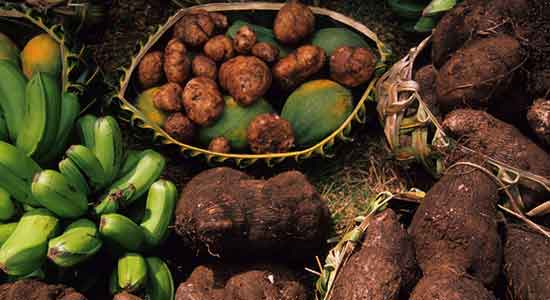Natural resources and ecosystems
Natural resources and ecosystems is one of University of Copenhagen's core research areas in relation to developing countries.
The research area covers
- Sustainable management of natural resources and biodiversity conservation, including rights to the resources
- Cultural values and social relations between poverty, farming, natural resources and local institutions both historically and in the future
Relevant centres and departments
Department of Geosciences and Natural Resource Management
The department belongs to the Faculty of SCIENCE. The research profile of the department is extensive and comprises disciplines within the natural sciences, the technical sciences, the social sciences and the humanities. The department conducts research into local, national and international topics. The development related research covers research groups on Environment and Society in Developing Countries, Tropical Trees and Landscapes, and Forest Genetics and Diversity.
Department of Plant and Environmental Sciences
The world faces huge challenges. The demand for food, feed and biomass for energy, fibres and chemicals will rise dramatically in the coming years because of increased population growth, climate change and scarce resources. The Department’s research and teaching focus on plants, microorganisms, animals, biotechnology and the environment as basis for sustainable production of the food of the future and other biological products. The Department has established advanced technological platforms for bio-imaging, metabolomics, analytical chemistry and phenomics.
Development Economics Research Group
The Development Economics Research Group (DERG) at the Department of Economics aims at promoting high-quality policy relevant research in development economics. Research themes are: 1) The developing countries in the global economy, including globalisation, international trade and capital movements, 2) National economic development policies, including structural adjustment, growth and transitional economics and 3) Agriculture, environment and resource utilisation, including the links between poverty, agriculture, natural resources and local institutions. Three cross cutting themes, i.e. theory of development economics, poverty and food security, and aid policy, are also covered. DERG is together with local and international partners responsible for large scale research activities in Mozambique and Vietnam.
Relevant research units
Research group on Environment and Society in Developing Countries
The aim of this research group at the Department of Geosciences and Natural Resource Management is to contribute to understanding globalisation processes and human dimensions of global change in developing countries. The key research areas are: Land use and land cover change, natural resource management and livelihood strategies, urbanisation, migration and rural-urban linkages, industrialisation processes and agro-industrial organisation, small scale mining, climate change mitigation and adaptation and earth observation and land surface processes.
Research group on Tropical Trees and Landscapes
The objective of the research group is to mobilise and build capacity, carry out applied and basic research, provide training and education, and advisory services within the research area of tropical trees and landscapes. It belongs at the Department of Geosciences and Natural Resource Management. The research group provides extension in conservation and utilisation of genetic resources of trees that will improve access to reproductive material for all kinds of tree planting and habitat restoration, including agroforestry, afforestation, and forest and landscape restoration in the tropics.
Section for Global Development
The group engages in inter-disciplinary research on economic, political, environmental, and institutional dynamics in developing countries. Research areas include issues of livelihoods, small-scale industry, trade, and labour; of climate change mitigation and adaptation; of forest and natural resource management; of resource conflicts and land grabbing; and of governance, state formation, and corruption. The research group is hosted by the Department of Food and Resource Economics.
Project examples
- AX - Access and eXclusion along the Charcoal Commodity Chain in Ghana

